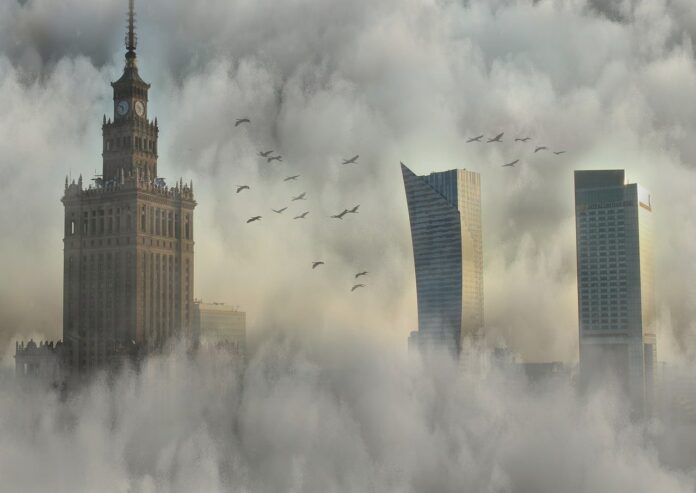For yet another year, a high level of crisis concerns among managers, directors of communication, and spokespersons of key Polish companies and institutions continues. The Crisisometer, an index prepared based on their opinions and created by the Alert Media Communications agency, stood at 55% this year, recording a symbolic drop of 2 percentage points. At the top of the potential crisis list for 2024, after a year’s break, were problems arising from the internet (indicated by 44% of respondents), surpassing economic difficulties related to inflation in second place and problems generated by the political situation in third place. However, the landscape of the past year 2023 does not look very pessimistic. As many as 70% of respondents claim that thanks to professional operations in the past year, they managed to avoid crises in the organizations they work for.
The specter of crises still strongly hangs over companies and institutions. Image crises are more likely than communicative peace. This is the main conclusion from the survey conducted on a large panel of over a hundred communication managers by Alert Media Communications, a public relations agency specializing in crisis communication and strategic PR. Between November and December, the agency carried out the seventh edition of the Crisisometer survey, which allows assessing the likelihood of communication crises. Participants in the panel of experts created by the agency rate the risk of an image crisis in their organizations on a scale from 1 to 100. The Crisisometer index this year was 55% from the average opinion of all respondents, recording a symbolic drop of 2 percentage points.
The forecast of crisis weather for 2024 – where will the storms come from?
At the top of the list of concerns of Crisisometer expert panel respondents for 2024, after a year’s break, returned crises originating from the online world, i.e., those that start on the internet. As many as 44% of respondents indicated this, which means 12 percentage points (pp.) more than the previous year. Further down the crisis podium fell difficulties related to economic uncertainty and high inflation indicated by 30% of respondents (compared to as much as 61% last year) and the negative impact of politics on the functioning of organizations, including worldview issues, unfavourable regulations or upcoming election campaigns (27% indications currently compared to 41% in last year’s edition of the study). For the first time in history, “black swans”, i.e., a potential new large crisis of international scope, impossible to predict at this stage (26% indications) and controversies caused by marketing activities or collaborations with celebrities, which cause fears for every fourth respondent (currently 25% – an increase of 10 pp. year on year).
“At the same time, it appears that companies and organizations are better prepared to manage potential risk associated with the complexities of the economy or politics, and are also more optimistic in both these areas after the recent elections, as the number of indications and concerns related to these areas has significantly decreased compared to the last year’s edition of the Crisisometer,” says Adam Łaszyn, CEO of Alert Media Communications.
Simultaneously, the summary of 2023 is not as pessimistic as would be suggested by the 55% forecast of the Crisisometer index. In the survey, image crises (which, according to the Alert Media definition, are negative internal or external events that constitute a serious disruption to the organization’s operations, associated with the fact or high risk of media, social media channels, customers, authorities or other stakeholders’ engagement) were reported by 36% of organizations. On the other hand, as many as 70% of the surveyed managers, directors, and press spokespeople stated that, thanks to the work of PR teams, their organizations managed to avoid potential crisis situations.
Micro-crises remain the bane of PR professionals
The thesis about the effectiveness of crisis prevention in companies and institutions is also confirmed by research results regarding so-called micro-crises, i.e., image or communication problems on a small scale, which may escalate to the rank of a serious crisis, for example, due to their emotional potential or possible controversies or conflicts they may cause. Over two-thirds of PR and communication experts (70%) surveyed spend at least an hour a week dealing with micro-crises. This results in over 50 such micro-crisis hours per year, i.e., over 6 days spent only on dealing with trifles, whose large crisis potential must be suppressed. Only 6% of respondents don’t deal with micro-crises at all. Interestingly, the higher the position, the more problems of this type to solve- among respondents holding a director’s position or equivalent, as many as 92% admitted that they deal with micro-crises at least an hour a week.
The Crisisometer 2023/2024 study, carried out by the Alert Media Communications agency in November and December 2023, involved 107 spokespersons, directors, and PR managers from leading Polish companies, state and local government institutions, and non-governmental organizations. Only in-house PR experts, i.e., those employed in corporations, organizations, or institutions, participated in the survey. PR service providers, i.e., PR agency employees, did not participate.


















